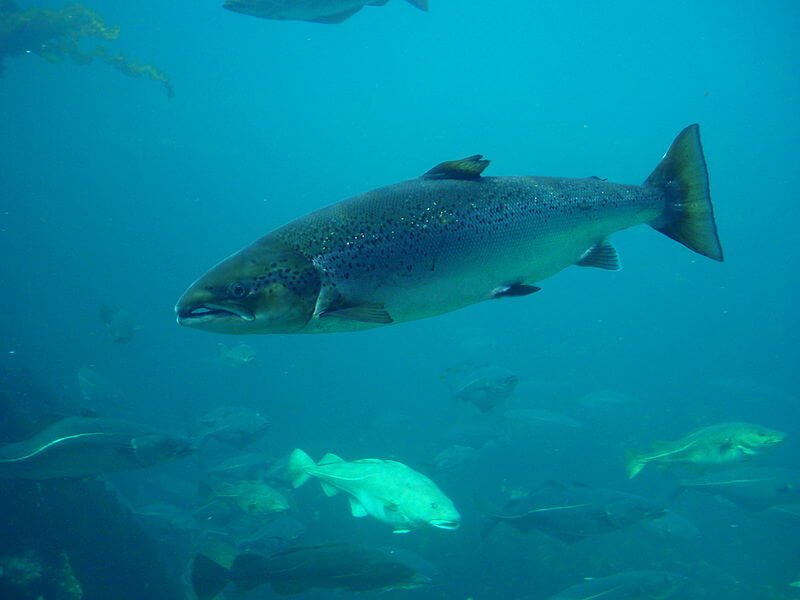The AquAdvantage salmon developed by AquaBounty Technologies of Massachusetts—an Atlantic salmon modified with a growth hormone gene from Chinook salmon so it grows to maturity faster—had been winding its way through the federal approval process for 17 years. Two years ago, the FDA had said it was going to release its environmental assessment, the final document in the approval process, within weeks. It was finally and quietly posted on the FDA’s website only last Friday—just hours before the long holiday weekend—and published in the Federal Register December 21, 2012.
The release came, FDA sources say, in response to the publication of an investigation in Slate by Jon Entine of the Genetic Literacy Project two days before, on December 19, 2012. The GLP had reported that the FDA had definitively concluded last spring that the fish would have “no significant impact” on the environment and was “as safe as food from conventional Atlantic salmon.” However, the draft assessment, dated April 19, 2012, was not released—blocked on orders from the White House.
View the original article in Slate: Obama’s Science Commitment, FDA Face Ethics Scrutiny in Wake of GMO Salmon Fiasco.
The seven month delay, sources within the government say, came after discussions late last spring between Health and Human Services Secretary Kathleen Sibelius’ office and officials linked to Valerie Jarrett at the Executive Office, who were debating the political implications of approving the GM salmon. Genetically modified plants and animals are controversial among the president’s political base, which was thought critical to his reelection efforts during a low point in the president’s popularity.































